QuestionQUESTION: Hi, sorry this is sort of a long story and also my english is not very good...
I suddenly became a proud owner of a green-winged macaw because his previous owner died and her nephew, worried that the bird would end up in the wrong hands, gave it to me. I had to keep him in a relatively small cage for almost a week to build something bigger for him. Now he has a 10m2 cage but I'm worried for him because:
- I'm not sure I should have some papers to own him, not even sure he's legal in my country (Portugal);
- He lost a big feather from the tail;
- He flies very rarely even though his home has plenty of space. He just stands and moves around a little around his bird stand;
- Not sure if the cage is big enough for him;
- He used to make a lot of noise every time we came close but now he's usually silent;
- I feed him fruits of every kind and seeds and he eats them but I'm not sure if I should feed him anything else;
I'm also worried because I live in such a small island that has a few vets, but none of them are known for their bird knowledge. If he gets sick, how will I know and how can I help him?
I know this is too much but I'm really worried about him, thank you for your help!
ANSWER: -- Losing a big tail feather is likely part of a normal moulting at this time of year. If the quill of the feather is very white and hollow, no worries. If it's blood tinged, but no bleeding from the bird, it was perhaps an injury or accidental loss.
As for the rest of your concerns, it's wonderful that you care this much and I know that this page will be able to help you with everything from judging the size of his cage to how to feed and care for him. Even how to get him very tame.
By the way, our first effort will be to get him off seeds and eating a healthy diet. NO SEEDS.
But we'll do this carefully - I have a step by step guide and everything else right here:
http://www.4AnimalCare.org/birds
---------- FOLLOW-UP ----------
QUESTION: Hi
Thank you so much for the link. I just realized I know even less about him than I thought, and I've thrown out the seeds already!
I've read the website, top to bottom, and I was only left with two questions:
- The recipes are amazing, but I am still not sure about how much should I feed him daily. One of the recipes is enough?
- Is it normal that he trembles a bit? It's not all the time, but sometimes he does it, even when eating. I dunno if birds tremble when they're cold but it's mid spring...
Again, I'm deeply thankful for your help!
Answer-- Feed him as much as he wants and just be sure he gets plenty of exercise. That means giving him the opportunity to just stand in one spot and flap his wings. Make a game out of it. Regular showers also get these birds to flap and move around with sheer joy - and this is exercise too.
I set out about a handful of pellets and then offer them breakfast in separate dish; then after naptime at around 2 pm, fresh fruit/vegetables (dinner) - and don't forget giving some Brazil nuts, cashews, macadamia, pretty much any nut (no peanuts; peanuts are NOT actually nuts) since macaws need slightly more fat from this source than other birds.
Use your judgement - after you know your bird has eaten good meals, offer the nuts in-between or to top off a meal. Maybe 2 Brazil nuts a day; 4 cashews; etc.. I can't really tell you how many, it depends.
-- Also, don't worry if he doesn't eat well one day or seems to dislike something. The pellet based foods are nutritionally complete. Sometimes I have to offer carrots and mangoes for a month just for that ONE day they actually want them. Like any mom I find myself eating what the birds don't.
Another reason to provide meticulously clean dishes every time.
---
Shaking is often in response to #1 Being chilly, 2. Being nervous or scared, in a new situation and feeling insecure, #3 Being ill.
It happens a lot with youngsters, usually due to #1, 2
---
Hold him close to you and reassure him - that should take care of it. Remember, life is all brand new to this baby. EVERYTHING he learns about it is up to you.
Build his confidence, make him feel loved, safe and secure. Always be there with enthusiastic praise. Never, ever yell. To quiet a loud bird, stand very close by and whisper soothingly.
Many birds yell out of frustration, need for attention or even fear.
When the bird screams out of need for attention ALL the time, conduct a 'time out'.
Never longer than 5 minutes
---------
You'll do fine. You're both learning as you go

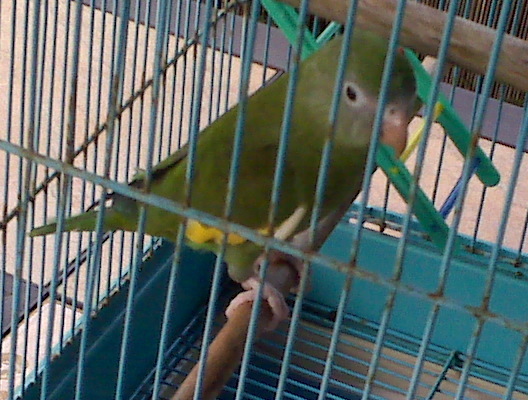 What type of parrot is this?
Question
Friendly bird
A week ago ths small parrot flew
What type of parrot is this?
Question
Friendly bird
A week ago ths small parrot flew
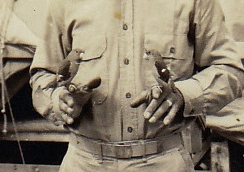 ID Birds
Question
Panama Birds
My uncle served in Panama in 1941
ID Birds
Question
Panama Birds
My uncle served in Panama in 1941
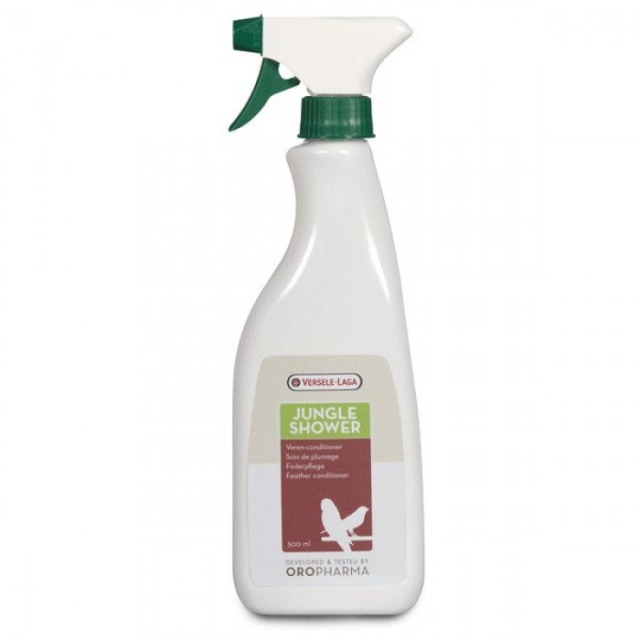 Indian Ringneck Health Issue
QuestionI have an Indian Ringneck who had been neglecte
Indian Ringneck Health Issue
QuestionI have an Indian Ringneck who had been neglecte
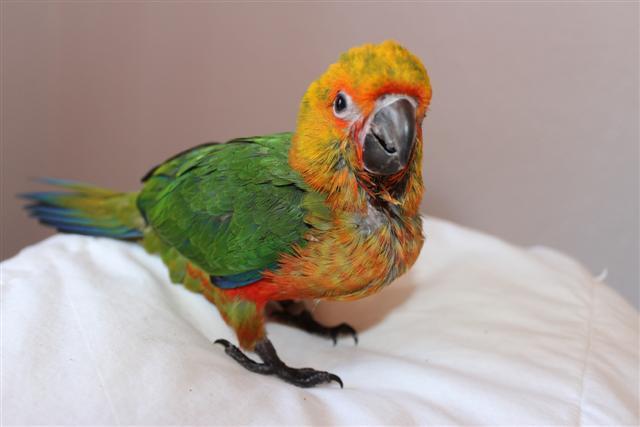 Jenday Conure Weaning?
Question
Castor the Conure
Hi
I have a 9 week o
Jenday Conure Weaning?
Question
Castor the Conure
Hi
I have a 9 week o
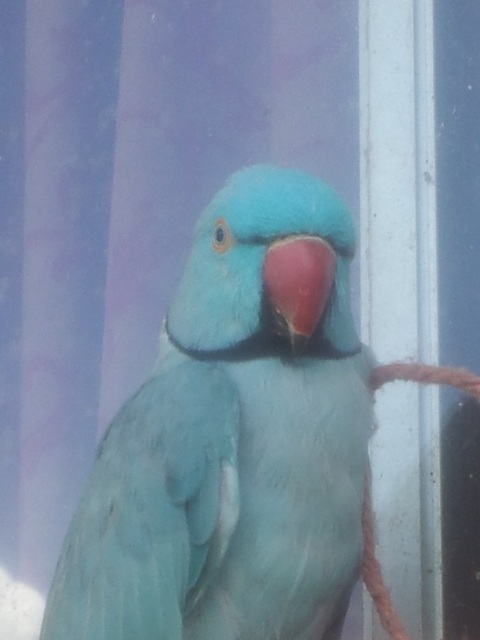 RE: Indian Ringneck probems
Question
Indy our Ringneck
Thank you for your he
RE: Indian Ringneck probems
Question
Indy our Ringneck
Thank you for your he